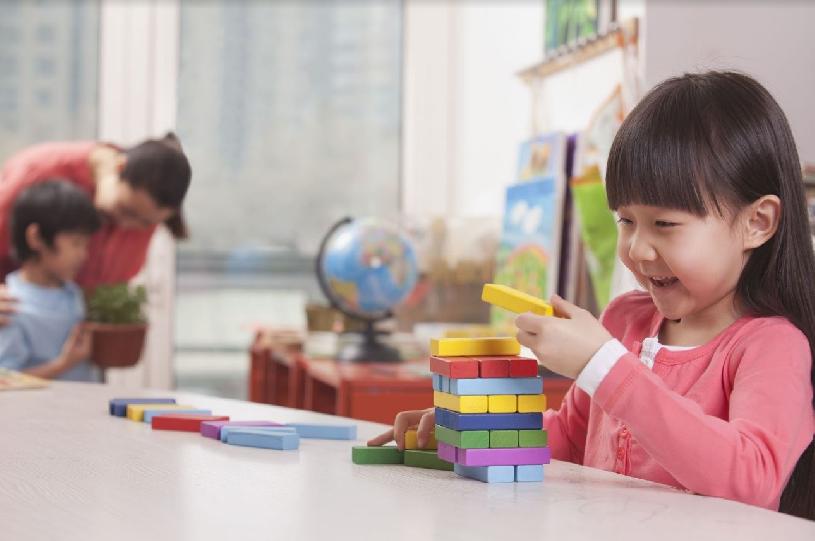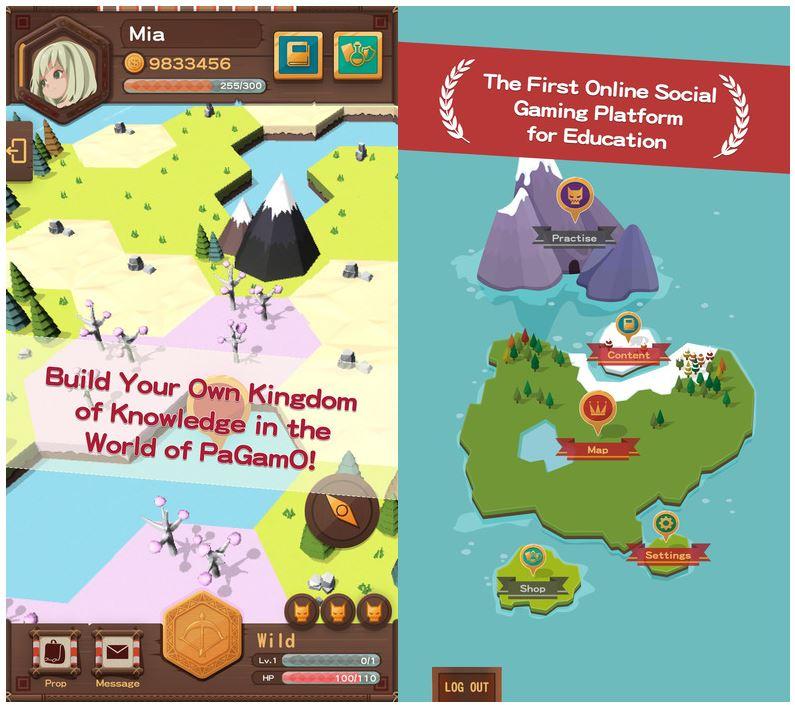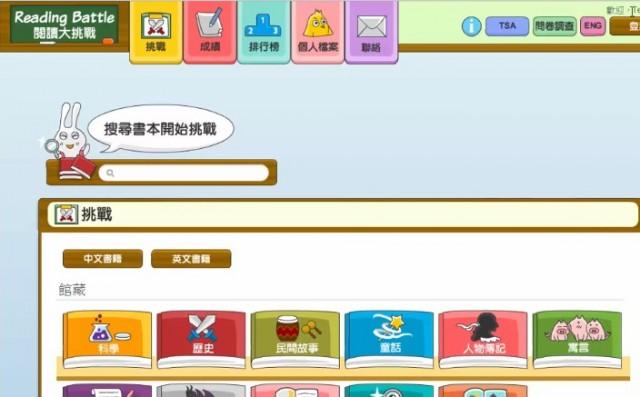【至fun閱讀】比TSA更有效的遊戲化學習平台
2017-01-27

TSA,全港性系統評估,是由教育局中央管理的評估,評估對象為小三及小六學生,前者每年、後者隔年執行。TSA目的是向學校提供客觀的數據,了解學生在中、英語及數學上的優勢和弱點,從而評估學生各方面的學習困難,改善學校的教學質素(考評局,2014年)。
TSA的出發點絕對正確,但是在執行過程中卻衍生了不少問題。對許多人來說,TSA是教育局為學校打分的成績表。所以,為了讓學生考得更高分數,許多學校催谷學生,要求他們操練大量TSA的練習(羅,2015)。
孩子們一直忍受乏味而重複的TSA練習,卻未能藉此增長知識。有見及此,許多父母近年不斷高調反對TSA。為了減少市民的批評,教育局於2016年修訂了TSA應試模式,讓學校自願選擇參與小三TSA(教育局,2016)。然而,這做法仍然未能從根本解決問題。直至今年1月,仍然有市民及教育團體請願,要求政府取消重推小三TSA的決定(張,2017)。
教育局以TSA這個模式來評估學生的基本能力,做法可以理解。但為了解決過度操練的問題,教育局有必要作出規管。首先,自願參與TSA的學校必須嚴格遵守指引,否則會有相應的懲罰。另外,教育局和學校應該為學生提供更有效及有趣的學習工具,讓他們發展基本能力,而不是堅持用沉悶的TSA練習去催谷學生。全球各地學者發現,將學習模式遊戲化,即是把遊戲元素加入日常應用當中,不單能改善學生的中英語及數學能力,更能有效提高課堂參與度(Goehle,2013) 。
台灣的PaGamO便是其中一個好例子。PaGamO是一個遊戲平台,提供經典的棋盤遊戲,讓用戶與其他在線玩家對奕,從競爭中學習各個科目的知識。他們可以設計問題,亦能挑戰其他玩家。平台提供了豐富的數據庫,讓學生有更多機會去練習。對於「熟能生巧」的數學科,這個學習模式特別有幫助(Lameras&Moumoutzis,2015)。 Kahoot!是另一個在台灣學校流行的遊戲學習平台,教師可以利用Kahoot設計測驗,使教學材料更有趣,從而提升學生的課堂參與度,鼓勵他們更熱衷學習(胡與徐,2016)。

▲PaGamO應用程式截圖
香港大學得到優質教育基金約300萬元資助,創建了另一個遊戲化的在線電子測驗平台「閱讀大挑戰」(Reading Battle – http://battle.cite.hku.hk/),現時已被超過50所遍佈香港、台灣、中國大陸和美國的學校和圖書館廣泛使用。不少參與學生表示,他們的閱讀動機和語言能力都有所增長。全港排名頭4位的小學生透過平台完成了超過400本書的閱讀測驗,平均分均超過95(滿分為100)。
在其中一所參與學校中,圖書館主任向學生進行了調查,發現有84%的學生認為「閱讀大挑戰」提升了他們的閱讀興趣,有94%的學生認為他們的閱讀能力在使用「閱讀大挑戰」後有所改善,該學校的學生更連續三年將「閱讀大挑戰」評選為「年度十大優秀網站」之一(Chan et al,2016)!

▲閱讀大挑戰影片截圖
許多學生不單在語文閱讀能力有躍進,寫作能力亦隨之顯著提升。「閱讀大挑戰」除了可提高學生的中英數能力,還可以改善學生在其他學科上的表現。有一名受訪學生表示:「我的英語和常識都有進步。我過去大約只有10分。但現在使用「閱讀大挑戰」後,我的分數上升到90分了!」(Lu et al,2016)。
要學生反復練習,無疑相當沉悶。但隨著將學習過程遊戲化,繁瑣的練習都可以變成有趣的學習挑戰!
作者:Sam Chu @至fun閱讀

香港大學教育學院資訊及科技教育部副教授,兒童文學講師及作家,閱讀研究員。
http://web.edu.hku.hk/staff/academic/samchu
其他文章:
Why students hate TSA exercises, but love ‘gamified alternatives’
TSA, Territory-wide System Assessment, is an assessment administered at the territory level and conducted among P.3 students every year, P.6 students only in odd-numbered years (HKEAA, 2014). It aims to (1) Provide schools with objective data on students’ performances; (2) Serve as a form of assessment regarding students’ strengths and weaknesses against specific basic competencies (i.e. Chinese, English, Mathematics); and (3) Identify overall students’ learning difficulties and improve teaching within schools (HKEAA, 2014).
The aim of TSA is commendable, but the implementation of it has been problematic. Parents and teachers perceive student scores in TSA as a school wide report card, which will be used by the Education Bureau (EDB) to evaluate how schools are performing. In order to attain a higher school banding, many schools forced their students to go through many TSA-like exercises to prepare them for the test (Lo, 2015).
Concerned that their children endure boring and repetitive TSA drills with minimal learning, many parents protested repeatedly over the past few years. To appease public criticism, the EDB has modified the TSA in 2016 so that schools can voluntarily choose to join the TSA for primary 3 (Education Bureau, 2016). However, this has not yet completely solved the deeply rooted controversies. Even in early January this year [2017], there were still active petitions urging the government to scrap the decision of relaunching TSA for primary 3 students (Cheung, 2017).
It’s understandable that the EDB needs something like TSA to assess how well students are doing regarding their ability in Chinese, English and Mathematics, which are the core competencies in primary education. To solve this issue, it is necessary to set up guidelines regarding how much preparation for the TSA is suitable. Firstly, schools that volunteer to participate in TSA are required to follow the guidelines strictly and penalties will be imposed on schools that do not adhere to the guidelines. Secondly, instead of drilling students with boring TSA exercises, EDB and schools should offer students more effective and interesting tools to develop their basic competencies. Irrespective of whether the subject is (e.g. Chinese, English or Mathematics), scholars worldwide have found that these competencies can be developed much more effectively and with greater student engagement through gamification – that is, by inculcating gaming elements in non-game applications (Goehle, 2013).
In Taiwan, a gaming platform (PaGamO) enables users to study any subject by competing with other online users based on classic board game settings. Users can set up questions and challenge the questions set by others as well. It provides a rich database and students can grab the chance to practice more, especially in mathematics, where practice makes perfect (Lameras & Moumoutzis, 2015). Kahoot! is another game-based learning platform which is popular in Taiwanese classrooms. Teachers can create their own quizzes using Kahoot! as a means to make the teaching materials more interesting and encourage more involvement in the lessons (Hu & Hsu, 2016).
Right here in Hong Kong, an online gamified e-quiz platform (Reading Battle / RB) has been developed by HKU with support of a $3 million Quality Education Fund. RB (http://battle.cite.hku.hk/) has been used by over 50 schools and libraries in HK, Taiwan, Mainland China and the US. Increased motivation to read and improved language abilities has been found among the participants. The top four primary students have read more than 400 books and completed respective reading quizzes with an average overall score of over 95%.
In one of the participating schools, the teacher-librarian surveyed her students and found that 84% felt that RB has enhanced their interest in reading. Ninety-four percent of the students believed that their reading ability has improved after using RB. For three consecutive years, students in the school have voted RB as one of the “Top Ten Best Websites of the Year” (Chan et al., 2016)!
Many students not only improved their Chinese/English reading ability, but also significantly enhanced their Chinese/English writing skills. Besides basic competencies, RB can help students in various academic subjects. One student said: “My English and General Studies have improved. I got 10 marks approximately [in the past]. But now, I get around 90 marks [after using RB]” (Lu et al., 2016).
Repetitive exercises can be boring, but with gamification, tedious comprehension exercises can be transformed into exciting learning challenges!
If you have any questions or comments, feel free to email to [email protected].
By Dr Sam Chu, Associate Professor
Division of Information & Technology Studies
Faculty of Education, The University of Hong Kong
Children literature lecturer & author, reading researcher
References:
BoniOInc. (2016). Popular Online Learning Game PaGamO Now Available as Android App. Retrieved from http://www.prnewswire.com/news-releases/popular-online-learning-game-pagamo-now-available-as-android-app-300291974.html
Chan, M., Chu, S., Mok, S., & Tam, F. (2016). Fostering Interest in Reading and Strengthening Reading Comprehension Ability of Primary School Students Using a Children’s Literature E-quiz Bank on the Cloud. Paper presented at the Quality Education Fund Project Seminar: Learning through Gamification: Cultivating a Love of Reading in Primary Students, The University of Hong Kong, Hong Kong, June 30, 2015. (Available at http://web.edu.hku.hk/staff/academic/samchu)
Lok, C. K. (2017). To beat student stress, Hong Kong should support its schools, not punish them. Stop stressing HK schools. Retrieved from http://www.scmp.com/comment/insight-opinion/article/2061142/beat-student-stress-hong-kong-should-support-its-schools-not
Goehle, G. (2013). Gamification and web-based homework. Primus, 23(3), 234-246.
HKEAA. (2014). Introduction to TSA. Retrieved from http://www.bca.hkeaa.edu.hk/web/TSA/en/Introduction.html.
Hu, W.-C., & Hsu, S.-T. (2016). The effectiveness of using computer technology to strengthen English as a medium of instruction courses in Taiwan tertiary education. Paper presented at the Systems and Informatics (ICSAI), 2016 3rd International Conference on.
Lo, A. (2015). Blame game: The shameless take on the spineless over Hong Kong’s flawed TSA tests for primary school students. Retrieved from http://www.scmp.com/comment/insight-opinion/article/1891660/blame-game-shameless-take-spineless-over-hong-kongs-flawed
Lu, Y., Wai, V., & Chu, S. (2016). Examination of top performing primary students in an e-quiz bank “Reading Battle”. Paper presented at the CITE Research Symposium, CITERS 2016, Hong Kong.
Newcomb, T. (2016, November 30). Gamify the Classroom: Kahoot! Software Boosts Learning, and Teamwork, Through Quizzes. The 74.
Lameras, P., & Moumoutzis, N. (2015). Towards the gamification of inquiry-based flipped teaching of mathematics a conceptual analysis and framework. Paper presented at the Interactive Mobile Communication Technologies and Learning (IMCL), 2015 International Conference on.
Yeung, R. (2016). Parents anger over continued drilling for TSA exams. Retrieved from http://www.scmp.com/news/hong-kong/education-community/article/1978131/parents-anger-over-continued-drilling-tsa-exams
HKEAA. (2016). TSA Report. Retrieved from http://www.bca.hkeaa.edu.hk/web/TSA/en/2016tsaReport/priSubject_report_eng.html
馮靖惠. (2017). 放棄學習的中輟生 因為「它」重新愛上課本. Retrieved from https://www.google.com.hk/search?sourceid=chrome-psyapi2&rlz=1C1OPRB_enHK653HK653&ion=1&espv=2&ie=UTF-8&q=google%20translate&oq=google%20translate&aqs=chrome..69i57j0l5.2407j0j7
星島日報. (2017). 教協發起反對全面復考小三TSA. Retrieved from http://std.stheadline.com/daily/news-content.php?id=1530948&target=2
教育局. (2014). 二零一四年起有關全港性系統評估的優化措施. Retrieved from http://www.bca.hkeaa.edu.hk/web/TSA/zh/pdf/EDBCM14054C.pdf
